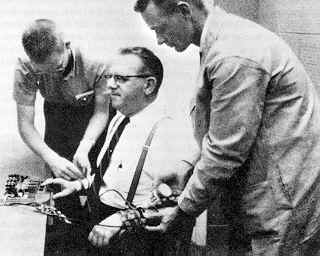Stanley Milgram’s (1974) study of obedience is one of the key pieces of empirical work in experimental psychology (Gibson, 2012). Milgram’s (1974) experiments have gained notoriety since publication creating a conventional account of peoples’ ease to obey authority (Gibson, 2012). Thusly, these findings have continually snowballed throughout popular with a precipitation for sensationalism within the mainstream domain (Gibson, 2012). Additionally, Milgram’s (1974) experiments have influenced many similar experiments with the aim to facilitate the comprehension of atrocities implemented by human beings throughout history, such as; acts of terrorism, torture, genocides, and wars (Gibson, 2012). Interestingly, in more recent times, researchers (e.g. Burger, 2000; Gibson, 2012) have shown an increased interest in what they have deemed an over simplistic distillation of Milgram’s (1974) findings. Gibson (2012) was particularly interested in participants’ rhetorical discourse to extricate themselves from the somewhat disturbing nature of Milgram’s (1974) experimental situations. This essay aims to critically examine these results by looking Milgram’s (1974) theories of obedience and contrasting them with Gibson’s rhetorical discourse. Continue reading
-
Subscribe
Subscribed
Already have a WordPress.com account? Log in now.
